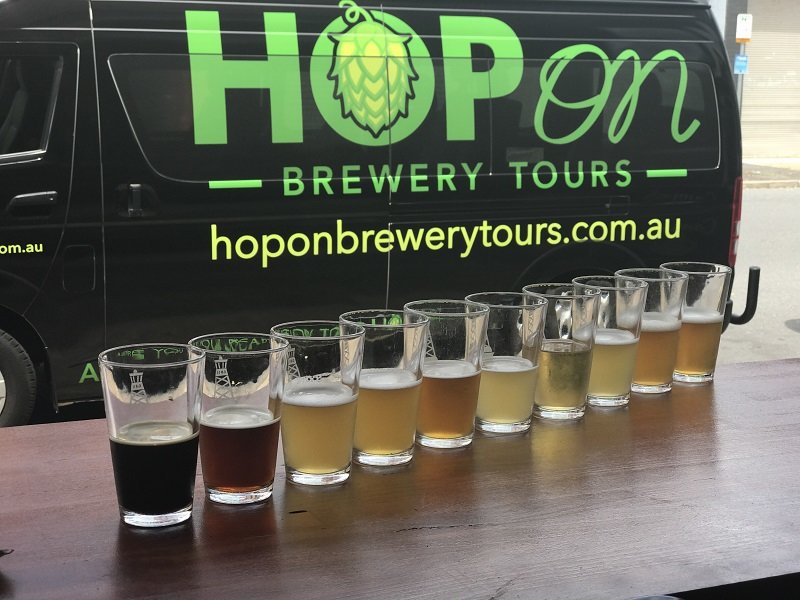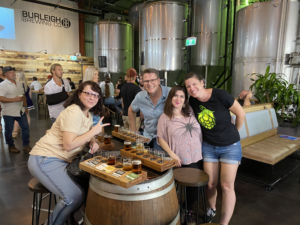Discrimination and Diversity in Craft Beer
The Beer Industry Diversity Survey, conducted by Beer Agents For Change, is a startling reflection on the industry we know and love.
Working in the craft beer industry is amazing. There are perks like having the occasional beer shouted when you run into brewers you know at a festival, or brewers lending equipment to new breweries just starting up, or even the broader community proudly supporting their local favourite by buying special release beers, merchandise, and so on.
What’s not so amazing are the results of the Beer Industry Diversity Survey (see the full press release here). It’s not just here in Australia where this kind of discrimination is taking place; in fact, the #MeToo movement in the US sparked a raft of comments, stories, and shares of women, BIPOC, and LQBTQI folk being discriminated against in their respective workplaces. And, as is noted in the survey results, this isn’t something new or unique to the beer industry.
References and further reading:
- ABC News “Harassment, abuse claims in Australian beer industry spark calls for change”
- Crafty Pint “BEER’S DIVERSITY AND DISCRIMINATION PROBLEM”
- Beer & Brewer “CALL FOR INDUSTRY RESPONSE FOLLOWING ‘CONFRONTING’ SURVEY RESULTS”
As a tour operator, we have a unique perspective in the beer world. We aren’t on the production floor or behind the bar, we don’t report to employers or run complaints through an HR department, and we aren’t out actively selling beer to bars, pubs, clubs and bottle shops. We have the advantage of being involved from the outside with a relatively unbiased perspective (we think). What this means is that, while there hasn’t been direct discrimination within the Hop On Brewery Tours team (since there are only two of us) or towards us from the wider beer community, there has been discrimination from guests who have joined us out tour.

I have always said that I was fortunate to grow up in a city where craft beer was ubiquitous. It was normal – even as teenagers having a party – to buy local beer. Not Budweiser or Coors (occasionally PBR as a joke), but Deschutes, Full Sail, Bridgeport, Rogue – the good stuff. Maybe I wasn’t aware of it, but I can’t remember a time when I went to order a beer at a bar and got spoken down to. In fact, even in the late ‘90s and early 2000s most bartenders were happy to have a chat, answer questions, and help find something to suit. This is an attitude that is still relatively new in Australia since the market is quite young in comparison.
Coming to Australia and immersing myself into the good beer scene here I’ve rarely felt patronised when at a venue, but maybe that comes down to the specific choice of venue. If good beer isn’t on tap and it’s a range of macro brands, I wouldn’t expect the server to know (or care about) the difference between a pale ale and a tropical sour. When out for a good beer (and a good time!) we often choose places we already know serve good beer, whether it’s directly at a brewery or one of the local bars popping up and supporting the local craft beer scene in Brisbane or Gold Coast. This means that the person behind the bar is usually just as keen to discuss the nuances of the dry-hop variety or the incredible flavours in the beer after barrel-ageing as I am.
Sure, there have been times where I’ll ask a very specific question and get spoken to like I have no idea what I’m talking about, but I attribute this more to people either 1) not listening to the question, or 2) being so used to stupid questions that their filter stopped flagging when it’s a good one worth diving into, or 3) they don’t know what to say other than what’s on the back of the tap decal. Fair enough, everyone is on their own journey.
What is disappointing is the number of times that a person or group of people out on tour has made me feel uncomfortable. It’s not every day, but it’s often enough to notice. The people who snigger when you mention yeast, or can’t contain themselves when you explain what a growler is. Those are the same guests who will ask me – someone who has spent 4 hours or more teaching about beer, discussing flavours and aromas, and even mentioning which beers from that brewery I really love – if I actually drink beer. And the amount of people that are shocked when I answer “yes” (I’m running a brewery tour company, for goodness’ sake!) never ceases to amaze me.
It’s subtle sexism. It’s my internal debate about wearing a skirt when taking a buck’s party out on tour because I don’t want to give any wrong impressions or have to worry about bending over. It’s wondering if my new shorts are too short for me to be taken seriously. It’s knowing what comments to expect when certain questions are asked early in the day, or people are criticizing female drivers at exactly the time I get behind the wheel. It’s teaching the (condensed) history of beer and how women were an integral part of beer’s evolution, only to be met with comments like “that’s right, women making beer for men to drink!” believing that a woman’s place has always been “in the kitchen.” It’s tasting a sour or a fruited beer and commenting that “chicks must like this one” or commenting that their partner only likes “girly beer” (whatever that is).
Subtle sexism also includes monitoring my replies to people so I don’t come off as bitchy, narky, or overly emotional. It’s keeping an even keel even when people are being disrespectful, making snide comments about others they see at the breweries, expressing signs of disinterest, or simply not listening to the rules and thinking they can get away with breaking them because I’m a girl. Groups can be hard to manage at the best of times; handling 10 men when I’m the only woman constantly keeps me on my toes.
On a day-to-day, I consider these non-issues. I haven’t been assaulted or attacked, I haven’t had complaints to my boss ignored or been denied a promotion because of my race, gender, religion, or any other reason. I feel safe and comfortable with the people – men and women – I know in the industry, but that – sadly – is how so many others have felt before the dreaded “something awful” happening.
This is why we all have to listen. Really listen. And then do better. It’s about calling people out on their comments and behaviour, especially when it feels uncomfortable to do so. It’s ensuring that the craft beer space welcomes diversity in all its many ways with all its many faces and perspectives, backgrounds and beliefs. It’s about education, not exclusion. And why we at Hop On Brewery Tours will evaluate our tolerances on tour and strive to make the community a safer place for everyone.
Cheers and beers,
Joslyn

